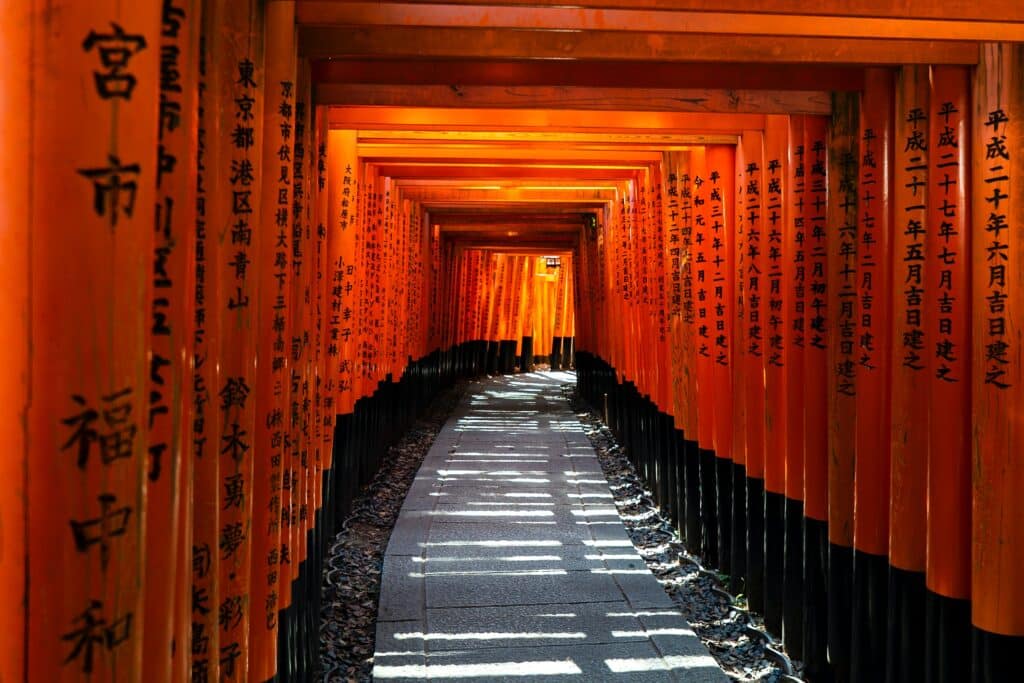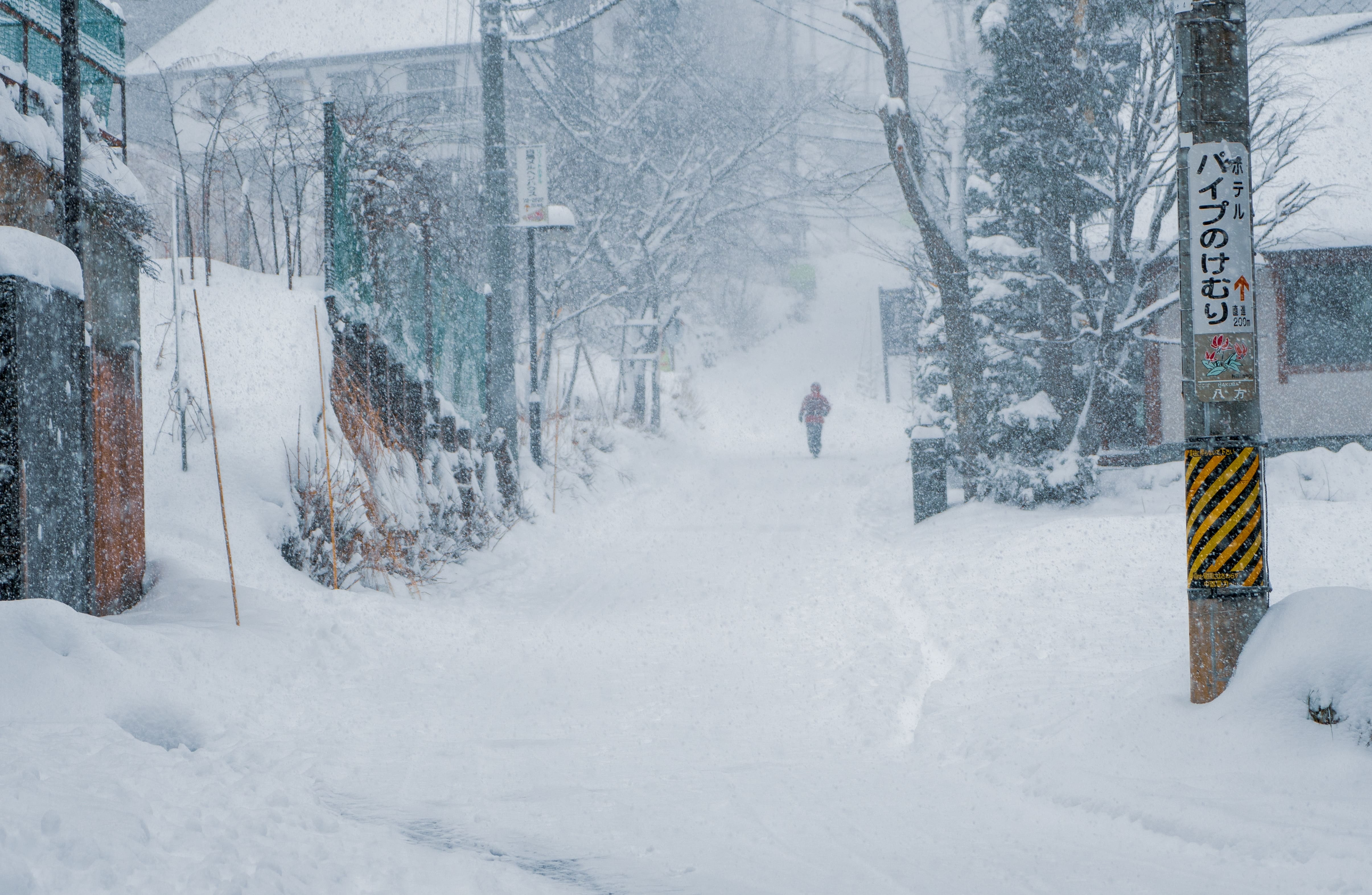
83 Essential Japanese Idioms to Learn Japanese Culture and Customs Now
Idioms are used so commonly in Japanese, you hear them in everything from casual conversations to news and cultural programs.
Idioms may seem like they aren’t important, but they really are because they give you important insights on Japanese culture and customs and people.
And remember that Japanese people aren’t very straightforward out of the desire to be super polite. So sometimes you ask a question, and you’ll get an idiom as an answer.
In this post, we’ll get to know 83 Japanese idioms that you might encounter on your Japanese learning journey.
Contents
- What Are Japanese Idioms (熟語)?
- Japanese Nature and Weather Idioms
- Japanese Idioms About Animals
- Japanese Idioms About People, Emotions and Feelings
- Japanese Idioms About Work and Business
- Japanese Idioms About Food and Eating
- Japanese Idioms About Travel and Journeys
- Japanese Idioms About Culture and Customs
- Why Learn Japanese Idioms?
- And One More Thing...
Download: This blog post is available as a convenient and portable PDF that you can take anywhere. Click here to get a copy. (Download)
What Are Japanese Idioms (熟語)?
“Idiom” in Japanese is 熟語 (じゅくご, jyukugo), which literally means “kanji compound,” or a grouping of kanji to create a simple phrase with deep meaning.
An idiom is a phrase or expression that conveys a figurative meaning beyond the literal interpretation of its individual words, often rooted in cultural or historical context.
Idioms are commonly used in language to convey ideas or emotions in a more vivid and imaginative way.
Japanese Nature and Weather Idioms

1. 明日には明日の風が吹く — Tomorrow’s winds will blow tomorrow
Hiragana: あすにはあすのかぜがふく
Now, this is a truly beautiful proverb. It’s a hopeful phrase that means “tomorrow is a new day.”
2. 雨降って地固まる — After rain falls, the ground hardens
Hiragana: あめふってじかたまる
This is yet another beautiful phrase coming straight from nature, with the same idea as in the English, “what doesn’t kill you makes you stronger.”
3. 雨が降ろうと、槍が降ろうと — Even if it rains, or if spears fall
Hiragana: あめが ふろうと、やりがふろうと
This alarming phrase indicates that even rain or spears falling from the sky can’t stop something. Use the idiom to mean “no matter what happens,” similar to the English phrase “come Hell or high water.”
4. 花鳥風月 — Flower, bird, wind, moon
Hiragana: かちょうふうげつ
Appreciating the beauty of nature; the changing seasons and their elements.
5. 雷を聞く側の神 — The god on the side that hears thunder
Hiragana: かみなりをきくがわのかみ
The advantage of being prepared; being on the side that anticipates the changing weather.
6. 木を見て森を見ず — Seeing a tree but not the forest
Hiragana: きをみてもりをみず
Focusing on details and missing the bigger picture.
7. 雨垂れ石を穿つ — Dripping water can pierce a stone
Hiragana: あまだれいしをうがつ
Consistent effort can overcome even the toughest obstacles.
8. 嵐の前の静けさ — The calm before the storm
Hiragana: あらしのまえのしずけさ
A period of quietness or tension before a significant event.
9. 風前の灯火 — A lamp in the wind
Hiragana: ふうぜんのともしび
A precarious situation; something fragile or unstable.
10. 雷を聞くは雷を見るに勝る — Hearing thunder is better than seeing it
Hiragana: かみなりをきくはかみなりをみるにまさる
Translation: It’s better to anticipate trouble than to experience it directly.
Japanese Idioms About Animals

11. 狸寝入り — A raccoon dog pretending to be asleep
Hiragana: たぬきねいり
Pretending to be unaware or feigning ignorance, similar to a raccoon dog playing possum.
12. 蓼食う虫も好き好き — Even a bug eating knotweed has its own taste preferences
Hiragana: たでくうむしもすきずき
Beauty is subjective; everyone has their own preferences.
13. 猿も木から落ちる — Even monkeys fall out of trees
Hiragana: さるもきからおちる
We all make mistakes! Comfort your Japanese friends after a blunder by saying this cute phrase.
14. 明日のことを言うと天井のネズミが笑う — If you speak of tomorrow, the rats in the ceiling will laugh
Hiragana: あすのことをいうとてんじょうのねずみがわらう
This is one of the less concise idioms in Japanese, being a quite convoluted way to express a universal truth: The future is unpredictable. This is similar to the English saying, “we make our plans, and God laughs.”
15. 虎穴に入らずんば虎子を得ず — If you don’t enter the tiger’s cave, you can’t catch its cub
Hiragana: こけつにいらずんばこじをえず
This has to be one of my favorites. It expresses the same sentiment as “nothing ventured, nothing gained” in English, but literally translates as a perilous adventure with tigers and cubs—which I think paints a great picture of both the risk and the reward.
16. 井の中の蛙大海を知らず — A frog in a well does not know the great sea
Hiragana: いのなかのかわずたいかいをしらず
This is a wonderful way to express the idea of a person who’s satisfied to judge everything by their own narrow experience, remaining ignorant of the wide world outside.
17. 月とすっぽん — The moon and a soft-shell turtle
Hiragana: つきとすっぽん
While Americans compare apples to oranges, Japanese speakers compare the moon and a turtle. However, while apples and oranges are more or less on equal footing, the moon is the clearly superior option. So this phrase is used to compare two very different things, where one option is clearly the better option.
18. 猫に小判 — Like gold coins to a cat
Hiragana: ねこにこばん
This is like the English “casting pearls before swine,” but with cats and gold, instead. It’s used to express the folly of wasting resources, beauty or quality on somebody who doesn’t appreciate it.
19. 猫も杓子も — Even cats and rice ladles
Hiragana: ねこもしゃくしも
This odd combination of items is used to indicate anyone and everyone, or suggest the idea of a whole lot of people. Similar phrases in English are “every Tom, Dick and Harry,” or “everybody and their mother.”
20. ごまめの歯ぎしり — Little fish grinding their teeth
Hiragana: ごまめのはぎしり
The thought of little fish grinding their teeth doesn’t exactly instill terror in a person. This idiom means that something is trivial or of no consequence, producing no effect. The phrase is often used to refer to a small person going up against a larger force, like a powerful corporation—no matter how much you yell, it’s likely to have little to no effect.
21. イタチの最後っ屁 — A weasel’s last fart
Hiragana: いたちのさいごっぺ
When you’re cornered and out of options, you may have to rely on the weasel’s last fart. This is your last ditch effort to do something in a desperate situation.
22. 猫の手も借りたい — Even want to borrow a cat’s paw
Hiragana: ねこのてもかりたい
Desperate for help; in a difficult situation and willing to accept assistance from anyone.
23. 馬耳東風 — Horse’s ears facing the east wind
Hiragana: ばじとうふう
Ignoring advice or criticism; being indifferent to what others say.
24. 狐の嫁入り — Fox’s wedding
Hiragana: きつねのよめいり
Sunshower; rain while the sun is shining, believed to be when foxes get married.
25. 亀の甲より年の功 — More valuable than a turtle’s shell, the experience of age
Hiragana: かめのこうよりとしのこう
The wisdom and experience gained with age are more valuable than youth.
26. 鳥が鳴かないと山が動かない — If a bird doesn’t sing, the mountain won’t move
Hiragana: とりがなかないとやまがうごかない
Encouraging others to speak up or take action to initiate change.
27. 猫舌 — Cat’s tongue
Hiragana: ねこじた
Someone who is sensitive to hot or cold food; having a picky palate.
28. 犬も歩けば棒に当たる — Even a dog may be hit by a stick if it keeps on walking
Hiragana: いぬもあるけばぼうにあたる
In life, one may encounter unexpected challenges or troubles.
29. 蛙の子は蛙 — A frog’s offspring is a frog
Hiragana: かわずのこはかわず
Like father, like son; children inherit traits from their parents.
30. 猫の額 — A cat’s forehead
Hiragana: ねこのひたい
A very small space; a tiny area.
31. 蛇の道は蛇 — A snake’s path is made by a snake
Hiragana: へびのみちはへび
Experts are best suited for a particular task or situation.
32. 獅子身中の虫 — A bug inside a lion’s body
Hiragana: しししんちゅうのむし
A seemingly formidable person or organization with a hidden weakness.
33. 狼少年 — Wolf boy
Hiragana: おおかみしょうねん
A young boy who behaves like a troublemaker or delinquent.
Japanese Idioms About People, Emotions and Feelings

34. 天下り — To command or dictate, or to descend from Heaven
Hiragana: あまくだり
There’s a practice in Japan so common that it has its own idiomatic name, where bureaucrats are often able to find high-ranking jobs in private firms after retirement. In a way, they’re descending from the heavens to grace us mere mortals with their presence.
35. 出る杭は打たれる — The nail that sticks up will be hammered down
Hiragana: でるくいはうたれる
The most commonly-known idiom outside of Japan is probably this one, which means that by standing out, you invite criticism.
36. 馬鹿は死ななきゃ治らない — Only death can cure an idiot
Hiragana: ばかはしななきゃなおらない
Ignorance can’t be cured, according to this idiom. Once an idiot, always an idiot.
37. 一期一会 — One opportunity, one encounter
Hiragana: いちごいちえ
Appreciate every meeting as a once-in-a-lifetime encounter.
38. 石の心を持て – Have a heart of stone
Hiragana: いしのこころをもて
Be resilient and emotionally strong; endure hardships without losing composure.
39. 口は災いの元 — The mouth is the source of calamity
Hiragana: くちはわざわいのもと
Be cautious with your words; speaking without thinking can lead to trouble.
40. 人間万事塞翁が馬 — Man proposes, God disposes
Hiragana: にんげんばんじさいおうがうま
The outcome of human affairs is unpredictable; life is full of ups and downs.
41. 涙の河を流す — Shedding a river of tears
Hiragana: なみだのかわをながす
Expressing intense emotions through tears; crying profusely.
42. 馬の耳に念仏 — Buddhist prayers in a horse’s ear
Hiragana: うまのみみにねんぶつ
Offering advice or wisdom to someone who is not interested or receptive.
43. 恋は盲目 — Love is blind
Hiragana: こいはもうもく
Love can make people overlook flaws or imperfections.
44. 二度あることは三度ある — What happens twice will happen three times
Hiragana: にどあることはさんどある
If something happens more than once, it’s likely to happen again.
45. 七転び八起き — Fall seven times, get up eight
Hiragana: ななころびやおき
Persevere in the face of challenges; resilience and determination.
Japanese Idioms About Work and Business

46. 鶏口となるも牛後となるなかれ — Rather be a chicken’s beak than an ox’s tail
Hiragana: けいこうとなるもぎゅうごとなるなかれ
It’s better to be a leader in a small group than a follower in a large one.
47. 船頭多くして船山に登る — Too many boatmen will make the boat climb a mountain
Hiragana: せんどうおおくしてふねやまにのぼる
Too many leaders can lead to chaos; a situation where there are too many chiefs and not enough Indians.
48. 初心忘るべからず — Do not forget the initial resolution
Hiragana: しょしんわするべからず
Stay true to your initial goals and intentions, especially in work.
49. 上には上がいる — There is always someone above you
Hiragana: うえにはうえがいる
There is always someone more skilled or experienced; there is no end to improvement.
50. 車の車輪、船の船首 — Wheels for cars, bows for ships
Hiragana: くるまのしゃりん、ふねのせんしゅ
Each tool has its own purpose; choosing the right tool for the right job.
51. 火のないところに煙は立たぬ — Smoke doesn’t rise without fire
Hiragana: ひのないところにけむりはたたぬ
There’s usually some truth behind rumors or suspicions in the workplace.
52. 河童の川流れ — Kappa’s river washed away
Hiragana: かっぱのかわながれ
Even experts or skilled individuals can fail or make mistakes. Kappa is a “river-child” from Japanese folklore.
53. 鯉の滝登り — A carp climbing a waterfall
Hiragana: こいのたきのぼり
Achieving something thought to be impossible; overcoming great challenges at work.
54. 三人寄れば文殊の知恵 — When three people gather, they bring the wisdom of Manjusri
Hiragana: さんにんよればもんじゅのちえ
Since Manjusri is a Buddhist figure known for wisdom, this idiom means collective wisdom, or when people collaborate, valuable insights emerge.
Japanese Idioms About Food and Eating

55. 花より団子 — Dumplings over flowers
Hiragana: はなよりだんご
Practicality is more important than aesthetics; substance over style, even in food.
56. 箸にも棒にもかからない — Can’t be picked up with chopsticks or with a stick
Hiragana: はしにもぼうにもかからない
Something unmanageable or difficult to deal with; a challenging situation.
57. 鰻の寝床 — An eel’s bed
Hiragana: うなぎのねどこ
A cozy or comfortable place; a bed as soft as an eel’s.
58. 米の炊き方を知らない — Don’t know how to cook rice
Hiragana: こめのたきかたをしらない
Lacking basic skills or knowledge; not knowing something fundamental.
59. 山のような食べ物 — A mountain-like amount of food
Hiragana: やまのようなたべもの
An overwhelming quantity of food; more than one can handle.
60. 天にも昇る気持ち — Feeling like ascending to heaven
Hiragana: てんにものぼるきもち
An extremely delicious taste; a heavenly culinary experience.
61. 鰻の白焼き — Grilled eel without sauce
Hiragana: うなぎのしらやき
Something incomplete or missing an essential element.
62. 一汁一菜 — One soup, one side dish
Hiragana: いちじゅういっさい
A simple and modest meal; a frugal approach to eating.
63. 豚に真珠 — Pearls to a pig
Hiragana: ぶたにしんじゅ
Offering something valuable to someone who cannot appreciate or understand its worth.
64. 肉を食えば肉を食われる — If you eat meat, you’ll be eaten by meat
Hiragana: にくをくえばにくをくわれる
Engaging in a competitive environment; survival of the fittest.
65. 舌先三寸 — A three-inch tongue
Hiragana: したさきさんすん
Speaking diplomatically or tactfully; choosing words carefully.
66. 海老で鯛を釣る — Catching a sea bream with a shrimp
Hiragana: えびでたいをつる
Achieving something great with minimal resources or effort; an unexpected success.
Japanese Idioms About Travel and Journeys

67. 石の上にも三年 — Three years on a rock
Hiragana: いしのうえにもさんねん
Patience and perseverance lead to success, even in a journey.
68. 千里の道も一歩から — A journey of a thousand miles begins with a single step
Hiragana: せんりのみちもいっぽから
To achieve a grand goal, start with a small and simple step.
69. 目の前の草しか見えない — Can only see the grass in front of one’s eyes
Hiragana: めのまえのくさしかみえない
Unable to see beyond immediate concerns; lacking a broader perspective.
70. 馬子にも衣装 — Even a horseman wears a coat
Hiragana: まごにもいしょう
Everyone, regardless of status, needs appropriate attire for a journey.
71. 石橋を叩いて渡る — Hitting a stone bridge before crossing it
Hiragana: いしばしをたたいてわたる
Being cautious and preparing for challenges before facing them during a journey.
72. 一期一会 — One opportunity, one encounter
Hiragana: いちごいちえ
Appreciate every meeting during a journey as a once-in-a-lifetime encounter.
73. 船頭多くして船山に登る — Too many boatmen will make the boat climb a mountain
Hiragana: せんどうおおくしてふねやまにのぼる
Translation: Too many leaders or opinions can lead to chaos during a journey.
74. 傍目八目 — Onlookers see more than players
Hiragana: おかめはちもく
Observers may have a clearer view of a situation than those directly involved in a journey.
75. 蜻蛉の尾を掴むよう — Trying to catch the tail of a dragonfly
Hiragana: とんぼのおをつかむよう
Pursuing something elusive or difficult to attain during a journey.
Japanese Idioms About Culture and Customs

76. 魚心あれば水心 — If the fish loves, the water loves
Hiragana: うおごころあればみずごころ
Reciprocity in relationships; if one shows kindness, it will be returned.
77. 十人十色 — Ten people, ten colors
Hiragana: じゅうにんといろ
Everyone is unique; people have their own individuality and preferences in culture and customs.
78. 知らぬが仏 — Ignorance is bliss
Hiragana: しらぬがほとけ
Sometimes, it’s better not to be aware of certain things.
79. 目の敵にする — To make someone an enemy in one’s eyes
Hiragana: めのかたきにする
Holding a grudge; considering someone an enemy based on cultural differences.
80. 藪から棒 — A stick from the bushes
Hiragana: やぶからぼう
Revealing an unexpected truth; discovering the hidden aspects of culture.
81. 天は自ら助くる者を助く — Heaven helps those who help themselves
Hiragana: てんはみずからたすくるものをたすく
Taking initiative leads to support and success.
82. 覆水盆に返らず — Spilt water cannot be scooped back
Hiragana: ふくすいぼんにかえらず
What is done is done; some things cannot be undone.
83. 秋の虫 — Autumn insect
Hiragana: あきのむし
Someone who excels in a particular field.
You can find many of these Japanese idioms in context in the video library of FluentU.
FluentU takes authentic videos—like music videos, movie trailers, news and inspiring talks—and turns them into personalized language learning lessons.
You can try FluentU for free for 2 weeks. Check out the website or download the iOS app or Android app.
P.S. Click here to take advantage of our current sale! (Expires at the end of this month.)

Why Learn Japanese Idioms?

Japanese is a remarkably concise language. Japanese speakers use idioms to express quite complex ideas in a very simple and memorable way. Through idioms, you can both familiarize yourself with the concise nature of Japanese and get on the fast track to speaking like a native.
You’ll sound more fluent when you throw out a few bites of time-honored wisdom!
Japanese idioms are scattered throughout pop culture. Because pop culture is usually produced with a native Japanese audience in mind, idioms can be used in a wide range of contexts. Knowing a few common idioms can really help you to make sense of what you’re reading or watching.
Proverbs and idioms are an integral part of all languages and cultures, and they play a significant role in Japan. Parents school their children using these phrases and they’re used in all areas of public life in Japan, so Japanese people are intimately familiar with them.
Learning idioms and sayings can help us gain a little more insight into the Japanese culture and mindset from feudal times to the modern day.
Many Japanese idioms express ideas or wisdom that we can apply to our own lives—which is the immersive style of learning that really sticks.
If you want to practice correct pronunciation of Japanese idioms and proverbs, check out this video, which goes over seven top Japanese idioms:
For additional pronunciation practice, Japanese movies and series are great for shadowing, pausing the video and echoing back any idioms as they pop up.
So, add these Japanese idioms to your flashcards and you’ll be on your way to speaking with genuine fluency—and wisdom—before you know it!
Download: This blog post is available as a convenient and portable PDF that you can take anywhere. Click here to get a copy. (Download)
And One More Thing...
If you love learning Japanese with authentic materials, then I should also tell you more about FluentU.
FluentU naturally and gradually eases you into learning Japanese language and culture. You'll learn real Japanese as it's spoken in real life.
FluentU has a broad range of contemporary videos as you'll see below:

FluentU makes these native Japanese videos approachable through interactive transcripts. Tap on any word to look it up instantly.

All definitions have multiple examples, and they're written for Japanese learners like you. Tap to add words you'd like to review to a vocab list.

And FluentU has a learn mode which turns every video into a language learning lesson. You can always swipe left or right to see more examples.

The best part? FluentU keeps track of your vocabulary, and gives you extra practice with difficult words. It'll even remind you when it’s time to review what you’ve learned. You'll have a 100% personalized experience.
Start using the FluentU website on your computer or tablet or, better yet, download the FluentU app from the iTunes or Google Play store. Click here to take advantage of our current sale! (Expires at the end of this month.)


